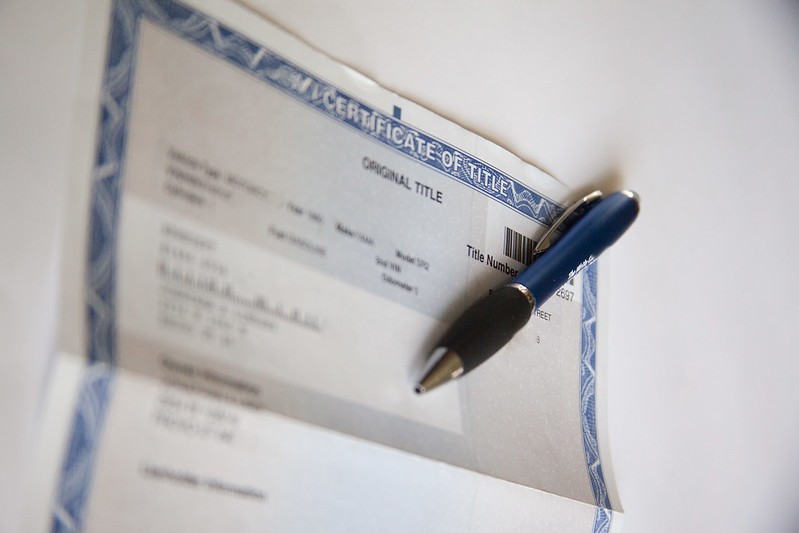If you're considering purchasing a car, you may be wondering whether you need to have the title or ownership documents in order to complete the transaction. The answer to this question depends on a few different factors, including where you live, how you plan to pay for the car, and what type of car you're buying. In this blog post, we'll explore these and other considerations to help you understand when you need to have the title or ownership documents for a car.
First, let's define what we mean by “title” and “ownership documents.” The title of a car is a legal document that proves ownership of the vehicle. It includes important information about the car, such as its make, model, year, and vehicle identification number (VIN). The title also lists the name of the current owner, as well as any co-owners or lienholders (if applicable).
Ownership documents, on the other hand, refer to any other documents that are necessary to prove ownership of a car. This can include things like registration papers, bills of sale, and insurance documents.
Now, let's consider some of the different factors that can influence whether or not you need to have the title or ownership documents for a car.
Where you live: The laws surrounding car titles and ownership documents vary from state to state. In some states, it's mandatory to have a car title in order to sell or transfer ownership of a vehicle. In other states, it's not strictly required, but it's still a good idea to have one in order to avoid any legal issues down the line. If you're unsure about the specific requirements in your state, it's a good idea to check with your local Department of Motor Vehicles (DMV) or consult an attorney.
How you plan to pay for the car: If you're planning to finance the car through a bank or other lender, you'll typically need to provide the lender with the title or ownership documents as part of the loan process. This is because the lender will want to ensure that the car is fully paid off before they agree to finance it, and the title or ownership documents can help them verify this.
What type of car you're buying: The requirements for car titles and ownership documents can also vary depending on the type of car you're buying. For example, if you're purchasing a new car from a dealership, you may not need to worry about the title or ownership documents, as the dealership will typically handle these details for you. On the other hand, if you're buying a used car from a private seller, you'll need to make sure you have the title or ownership documents in order to complete the sale.
So, do you need to have the title or ownership documents for a car? As you can see, the answer isn't always straightforward. In general, it's a good idea to have these documents in order to avoid any legal issues or disputes down the line. However, the specific requirements will depend on a variety of factors, including where you live, how you plan to pay for the car, and what type of car you're buying.
If you have any doubts about whether you need the title or ownership documents for a car, it's a good idea to consult with a legal professional or your local DMV. They can provide you with the information you need to make an informed decision and ensure that you're complying with all relevant laws and regulations.
One important thing to keep in mind is that if you're buying a car without the title or ownership documents, you may run into some issues when it comes time to register the car in your name. In many cases, you'll need to provide the DMV with proof of ownership in order to register the car. If you don't have the title or ownership documents, you may need to obtain a bonded title or complete a title application in order to get the car registered in your name.
Obtaining a bonded title can be a lengthy and complex process, so it's generally best to try to get the title or ownership documents from the seller before you complete the purchase. This can help ensure that you're able to register the car in your name as quickly and easily as possible.
Another thing to consider is that if you're buying a car without the title or ownership documents, you may have a harder time getting financing. Many lenders will require you to provide the title or ownership documents as part of the loan application process, so if you don't have these documents, you may have a harder time securing financing.
Finally, it's worth noting that if you're buying a car without the title or ownership documents, you may be taking on more risk. For example, if the car has a lien on it and the lienholder hasn't been paid off, you may be held responsible for paying off the remaining balance. Similarly, if the car has been stolen or has any other legal issues, you may be held liable for any problems that arise.
In summary, whether or not you need to have the title or ownership documents for a car depends on a variety of factors, including where you live, how you plan to pay for the car, and what type of car you're buying. In general, it's a good idea to have these documents in order to avoid any legal issues or disputes down the line. If you have any doubts about whether you need the title or ownership documents for a car, it's a good idea to consult with a legal professional or your local DMV. They can provide you with the information you need to make an informed decision and ensure that you're complying with all relevant laws and regulations.



